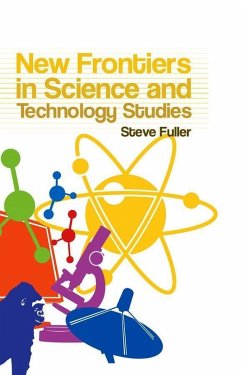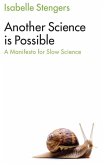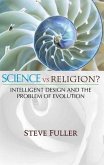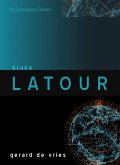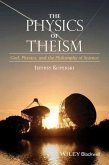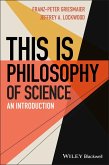Steve Fuller has a reputation for setting the terms of debate within science and technology studies. In his latest book, New Frontiers in Science and Technology Studies he charts the debates likely to be of relevance in the coming years.
These questions are explored by examining an array of historical, philosophical and contemporary sources. Attention is paid, for example, to the Bruno Latour's The Politics of Nature as a model for science policy, as well as the global controversy surrounding Bjorn Lomborg's The Sceptical Environmentalist, which led to the dismantling and re-establishment of the Danish national research ethics board.
New Frontiers in Science and Technology Studies will appeal strongly to scholars and advanced undergraduate and graduate students in courses concerned with the social dimensions of science and technology, and anyone who cares about the future of science.
- Should science and technology be treated as separate entities?
- What impact has globalization had on science and technology?
- Can science be clearly distinguished from other forms of knowledge?
- Does the politicization of science really matter?
- Is there a role for the social regulation of scientific inquiry?
- Should we be worried about research fraud?
These questions are explored by examining an array of historical, philosophical and contemporary sources. Attention is paid, for example, to the Bruno Latour's The Politics of Nature as a model for science policy, as well as the global controversy surrounding Bjorn Lomborg's The Sceptical Environmentalist, which led to the dismantling and re-establishment of the Danish national research ethics board.
New Frontiers in Science and Technology Studies will appeal strongly to scholars and advanced undergraduate and graduate students in courses concerned with the social dimensions of science and technology, and anyone who cares about the future of science.
Dieser Download kann aus rechtlichen Gründen nur mit Rechnungsadresse in D ausgeliefert werden.
"As the leading STS intellectual provocateur, SteveFuller's encyclopedic range keeps astounding novices andprofessionals alike. The book is detailed, analytic, critical, andfriendly all at the same time. Fuller himself has been an activeparticipant, and at times an instigator, of some of the mostfascinating debates in this domain of research and practice-this survey brings out some of his own novel ideas andapproaches. In the end, Fuller remains firmly in theliberal-democratic camp, with a utopian dream of knowledgeintegration, and reaches a deep appreciation of the significantcontribution of science to contemporary culture."
Raphael Sassower, University of Colorado, ColoradoSprings
"Fuller provides a scintillating critique of thefashionable actor network theory and other anti-humanist projectsthat, their claims to the contrary notwithstanding, threaten toderail the critical and democratic potential of STS. His insightfuland lively diagnosis of the past and the present state of the fieldenables him to formulate an exciting and politically engaged agendafor STS."
Zaheer Baber, University of Toronto
"In recognition of the great changes in science in lasttwo decades, STS has become focused on technoscience and regulatoryscience and the new institutional realities of science. What hasbeen lost sight of, Fuller points out, are some other topics thathave changed along with this change: the public justification andface of science, the ways in which science understands the problemof the unity of knowledge, new meanings of old concepts, such asfraud and consensus, and demands to democraitze knowledge. With aneye to the grand figures of the past, he restates the big issuesfor the present - a much needed effort."
Stephen Turner, University of South Florida
Raphael Sassower, University of Colorado, ColoradoSprings
"Fuller provides a scintillating critique of thefashionable actor network theory and other anti-humanist projectsthat, their claims to the contrary notwithstanding, threaten toderail the critical and democratic potential of STS. His insightfuland lively diagnosis of the past and the present state of the fieldenables him to formulate an exciting and politically engaged agendafor STS."
Zaheer Baber, University of Toronto
"In recognition of the great changes in science in lasttwo decades, STS has become focused on technoscience and regulatoryscience and the new institutional realities of science. What hasbeen lost sight of, Fuller points out, are some other topics thathave changed along with this change: the public justification andface of science, the ways in which science understands the problemof the unity of knowledge, new meanings of old concepts, such asfraud and consensus, and demands to democraitze knowledge. With aneye to the grand figures of the past, he restates the big issuesfor the present - a much needed effort."
Stephen Turner, University of South Florida

